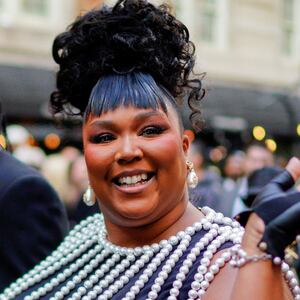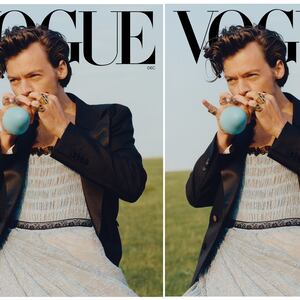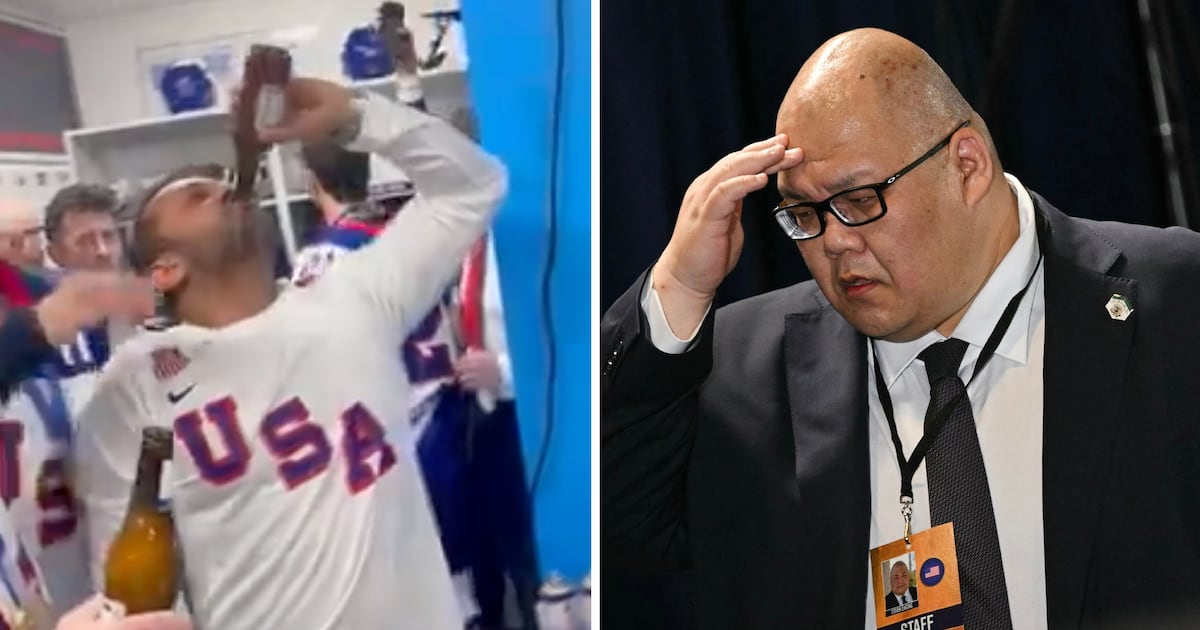How could she? How could Lizzo, of all people, be responsible for allegedly creating a “hostile and unsafe work environment”?
That’s the question being asked this week after it was revealed that three of the rapper/singer’s former dancers are suing her for body discrimination, religious discrimination, and sexual harassment, among other charges. Details include allegations that Lizzo coerced her employees into touching naked sex workers and would privately shame her dancers for gaining weight.
This damning portrait of Lizzo was recently corroborated by filmmaker Sophia Nahli Allison, who dropped out of making a documentary about Lizzo’s life and career. “She is a narcissistic bully,” Allison said Tuesday in an Instagram Story, “and has built her brand off of lies. I was excited to support and protect a Black woman through the documentary process but quickly learned her image and ‘message’ was a curated facade.”
It’s never pleasant when a beloved icon is accused of behavior that complicates their unproblematic image. (The singer has staunchly denied the allegations, calling them “outrageous” and “sensational.”) What makes Lizzo’s case especially dramatic is that these accusations fly directly in the face of her brand: one that is deeply wrapped up in concepts like inclusivity, body positivity, and diversity. This extends to her music, which has been hailed by some critics as a progressive political statement, one meant to offer hope to young progressives desperate for pop music that reflects their values. For these kinds of fans, the news of Lizzo’s alleged misconduct is especially heartbreaking.
But perhaps the question shouldn’t be how someone like Lizzo could ever engage in this sort of behavior. The better question is, why were we so convinced she was a politically progressive artist in the first place?
To be fair, that idea didn’t come from nowhere. Starting with songs like “Truth Hurts” in 2019, Lizzo successfully paved a path to superstardom as a big, Black woman preaching self-love: something that is absolutely a political act in and of itself. But although her existence in the mainstream may be a comfort to those who crave representation, calling her music itself “progressive” has always been an act of forced projection.
The truth is, albums like Special, Lizzo’s most recent project, released last year, are not at all progressive—at least no more so than saying “yas queen!” or dressing up as Ruth Bader Ginsburg for Halloween. In fact, there’s often a neutrality and safeness to them that is at best politically agnostic and at worst regressive. Lizzo’s work can be better described as “progressive-core”: music that treats progressivism less as a set of values and more like a mood board; an aesthetic you can wear like a flower crown at Coachella.
Many of the songs on Special evoke the disco-pop of the late 1970s, music created and championed by the queer Black vanguard. It’s a sonic culture that was celebrated for being lush, extravagant, and, most importantly, radical. However, in true “progressive-core” fashion, Lizzo not only refuses to add a contemporary bent to this sound, she often constricts it. Songs like “Everybody’s Gay” take all the sounds of liberation—the orchestral strings, the four-on-the-floor drums, the Nile Rodgers-indebted funk—and flattens them, mixing and mastering them within an inch of their life so as to be legible on Z100. The lyrics, as the title suggests, are a pandering, paint-by-numbers attempt at identity politics; the line “Bitch, say less, express yourself” reads like a sentence made from a magnetic poetry kit on a young Manhattanite’s fridge. Like all progressive-core music, the song feels forward-thinking, until you realize just how contrived every part of it truly is.
So how did we become so easily convinced that Lizzo is a progressive artist? Why do we feel so let down by her right now? It may be in part due to the context in which she arrived into the mainstream.
Modern political catastrophes have coincided with an apparent growing need for fans to feel like they have close and personal relationships with their celebrities. As such, there’s an unprecedented pressure on today’s superstars to create music that “makes a statement”—particularly one that lines up with the progressive values of young listeners while still being broad enough for repeat listens and sold-out stadiums. It’s these conditions that have given birth to artists like Lizzo, who capitalize on the trendiness of progressivism without getting too bogged down by its actual politics.
Today, there is no shortage of artists whose quasi-progressive signaling has been received as radical: Taylor Swift included the Queer Eye guys in a music video and then received a GLAAD Vanguard award; Harry Styles wore a dress and became the face of gender fluidity in music; Lizzo sang phrases like “thick-thirty” and was given the PCA’s 2022 People’s Champion Award for her commitment to size diversity.
Meanwhile, pop stars who are finding more detailed and thoughtful ways of championing progressive ideology are constantly facing accusations of hypocrisy. Beyoncé’s most recent album, Renaissance, was critically acclaimed for its studied and well-executed take on Black queer music, yet she was scrutinized by people who questioned whether a heterosexual star has any right to make an album appropriating queer culture. Then there’s Kendrick Lamar, who has long been heralded the torchbearer for all things “conscious” in rap music; his 2015 song “Alright,” which preaches equanimity in the face of profound injustice, is the closest thing we have to a contemporary and canonical protest anthem. But last year, Lamar was scolded for his song “Auntie Diaries,” in which he deadnames his trans relatives and repeatedly uses a gay slur. The discourse around the song punctured a hole in the rapper’s image as an icon of leftist politics, despite his attempt to shed light on the struggles of the Black trans community—something no mainstream rapper had done before.
The difference between Lizzo’s music and “Auntie Diaries” is that the latter fails not by skimming the surface of sociopolitical issues, but by clumsily ramming into them head-on. Songs like these have no room in our current culture because progressives have a hard time cosigning a political statement that isn’t executed with painstaking precision and consideration. It’s much easier to settle for progressive-core artists like Lizzo, whose messaging is so broad and empty, we can project whatever ideology we want onto it.
This isn’t inherently a problem; the job of a mainstream pop artist is often to create a picture of themselves that is just vast and blurry enough that, if we squint real hard, we can see ourselves in it. We just need to be prepared for the possibility that, should that portrait ever come into focus, we might not like what we see.








